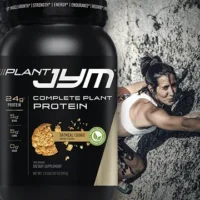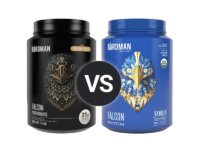Knowledge BaseYou're Questions Answered
Can pea protein powder cause diarrhea?
Pea protein powder like other protein supplements can cause digestive issues, including diarrhea in some individuals. This reaction is typically due to difficulty digesting certain compounds in pea protein. Particularly if someone is not accustomed to plant-based proteins. Pea protein is derived from yellow split peas. While it is generally considered easy to digest compared to other plant-based proteins, some individuals may still experience gastrointestinal discomfort.
Potential Causes of Digestive Issues from Pea Protein Powder
- Individual Tolerance to Plant-Based Proteins
Some people may have a harder time breaking down the components of pea protein, leading to digestive issues such as bloating, gas, or diarrhea. This can be due to an individual’s sensitivity to plant-based proteins or the presence of natural compounds like fiber in pea protein that may cause digestive distress in higher quantities1. - Overconsumption
Consuming too much protein powder, including pea protein, in a short period of time can overwhelm the digestive system. If the body is not able to process large amounts of protein efficiently, it may lead to symptoms like diarrhea, especially if hydration is insufficient2. - Quality of Pea Protein Powder
Some pea protein powders may contain added ingredients such as artificial sweeteners, gums, or fillers, which can irritate the digestive system and cause diarrhea. Choosing a high-quality, minimally processed pea protein powder can reduce the risk of digestive discomfort3.
How to Prevent Digestive Issues with Pea Protein Powder
- Start with Small Servings: Begin by using smaller servings of pea protein powder to assess your body’s tolerance. Gradually increase the amount over time to allow your digestive system to adjust.
- Stay Hydrated: Ensuring that you drink enough water when consuming protein powder can help prevent dehydration and digestive issues like diarrhea.
- Choose a High-Quality Product: Opt for pea protein powders without artificial additives, sweeteners, or fillers, which may cause or worsen digestive discomfort.
- Switch to Another Protein Type: If digestive issues persist, consider switching to a different type of protein powder, such as rice, hemp, or whey, to see if symptoms improve.
Pea protein powder can cause diarrhea in some individuals, especially if consumed in large amounts or if the person has difficulty digesting plant-based proteins. To minimize the risk of digestive issues, it’s important to choose high-quality pea protein products, start with small servings, and stay properly hydrated. If symptoms persist, switching to another type of protein powder or consulting a healthcare professional may be necessary to find a solution.
- Young, V. R., & Pellett, P. L. (1994). Plant proteins in relation to human protein and amino acid nutrition. The American Journal of Clinical Nutrition, 59(5 Suppl), 1203S-1212S.
- Phillips, S. M., & Van Loon, L. J. (2011). Dietary protein for athletes: From requirements to optimum adaptation. Journal of Sports Sciences, 29(sup1), S29-S38.
- Smith, J. P., Daifas, D. P., El-Khoury, W., Koukoutsis, J., & El-Khoury, A. (2004). Role of protein in sports nutrition. Nutrition Research Reviews, 17(2), 233-244.
Related Questions
Related Reviews

Your Answer
We are a participant in the Amazon Services LLC Associates Program, an affiliate advertising program designed to provide a means for us to earn fees by linking to Amazon.com and affiliated sites.






